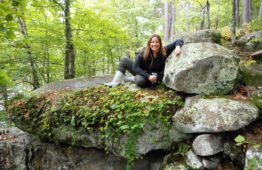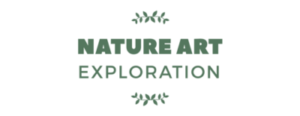The Ojibwe language and culture is one of the many indigenous cultures that I view as being a storehouse of wisdom leading towards a more sustainable future. The earth-centered values and values of humility inherent in Ojibwe language and culture are like a treasure box waiting to be opened. The language of Anishinaabe people encompasses the cultural traditions and ceremonies which can only be conducted in the Ojibwe language. There are not English equivalents for much of the language, and the world perspective of Ojibwemowin is one that is placed in humility and in balance with nature. This is something that has entranced me from the beginning of my learning adventure with Ojibwe language and culture. As you’ll notice, I use the name Ojibwe and Anishinaabe interchangeably to refer to the same group of native peoples whose heritage language, Ojibwemowin, is endangered and large efforts at revitalization are currently under way.
An excerpt from the online Ojibwe People’s Dictionary reads as follows.
Scholars and linguists tell us that language diversity is as important to the world and our systems of knowledge as biological diversity. Ojibwe people understand that fluent speakers of the language have a wisdom that represents an accumulated knowledge of many generations. The Ojibwe language can explain why we must respect the earth and take responsibility for caring for the land, water, and its resources. It is the antidote to global climate change, environmental destruction, and unhealthy lifestyles. The Ojibwe language is where we turn for philosophy, history, science, medicines, stories, and spirituality. It is our university and the key to our cultural survival.
Approximately 10 years ago, this same philosophy motivated me to interview my Ojibwe language teacher, Gaagigebines, on his perspectives into how Ojibwe language and culture can lead the way towards a more sustainable future. I had been engaged in a Leadership in Sustainability seminar at the University of Wisconsin-Superior where I was a student at the time. The interview was inspired through this involvement and my admiration of his wisdom as my Ojibwe language teacher. Following is one of his many illuminating quotes from the interview.
“If we get in touch with values, we are going to have a lot more people having respect for the earth and that is incorporated in the Anishinaabe language. You need to be humble and respect what was given to you. Creator gave us the language and creator gave us the earth. He created the earth, and not only for us, but for others to share. When you look at the order of creation, one of the values there is that Anishinaabe were created last which means that all these things, the animals, the trees, the birds, and the water can survive without us. Since the Anishinaabe were created last, everything would work out just fine without us. We are the ones that need the earth. We are the ones that need the animals. We are the ones that need the plants to sustain ourselves. Respect for the earth is a value that is being lost today. It is very apparent when you see dominant culture polluting the earth. Having respect for mother earth, we need to take care of her because she takes care of us. In terms of the future, if we don’t change that, if we don’t convince dominant culture that what they are doing is hurting Mother Earth, things are going to change. If you talk to elders, they are the ones who will tell you that is why we have so many natural catastrophes. Mother Earth is trying to get our attention. Listen, you can’t be doing that.” -Gaagigebines, Dan Jones September 2008
He further discussed these perspectives on “The Importance of Humility” in the following video by: Ojibwe Digital Archive.
Last month, Gaagigebines, Dan Jones journeyed on into the spirit world, but as those who know the Ojibwe language and culture know, there is no word for good-bye. “Giga-waabamin miinawaa” means I shall see you again, in the physical or in the spiritual. It is not good-bye. The seeds of Ojibwemowin that Gaagigebines planted in so many peoples’ hearts is truly a gift. I was sharing some of the teachings of Ojibwe language and culture with my son the other day, and we began talking about gardening these seeds. We talked about watering these seeds daily and how when we speak the Ojibwe language and share cultural teachings we are further spreading these seeds to grow.
“The only way to keep something is to give it away,” Gaagigebines shared his philosophy in the 2008 interview. “This isn’t just for teachers or students. It is for anybody who wants to learn Anishinaabemowin and the culture.” The welcoming environment that he created for all of his students and people who knew him modeled such a beautiful way of sharing the language and culture. This openness will surely live on in the hearts of those who were blessed with the gift of knowing him.
For the last several years, I had really drifted away from speaking the language. I feel like I wasn’t honoring these gifts I had been given. Without speaking the language regularly and sharing these gifts, these seeds were not being watered. Now, it’s time for me to circle back. It’s time to re-trace my steps. I want my son to learn his native language and to share Ojibwemowin as a family. I want to reconnect with the language revitalization efforts that I know are still waiting with open doors for those who want to learn.
Gaagigebines shared some of Dr. Anton Treuer’s words during the interview, “Many people would say we are losing the language, but the fact is that we have always had it, and we are never going to lose it. People may be diminishing in numbers, but we are not losing anything. It is the other way around. The language is losing us.” Gaagigebines had a gift of knowledge to share. Now, these gifts are spread throughout our communities. These gifts are treasures that give voice to a culture whose relationship with the earth is opposite to that of dominant society, and the values incorporated in it have a lot to contribute to the turmoil of present society.
When opened, I view this treasure box as a storehouse of wisdom. In the 2008 interview, Gaagigebines offered many examples of the language’s earth-centeredness and the way it carries the culture’s traditional wisdom. For instance, sacred legends and stories go along with the names given to the plants and animals. Learning these in the winter-time, a time in which it is culturally appropriate to tell legends, is just as important as labeling them. I have learned about some of the values these stories and legends teach, and in my opinion, they hold a lot of wisdom for us all to call upon today. Gaagigebines said that another unique aspect of the language is that many traditional uses of the plants are incorporated in their names. For example, the Ojibwe word for a black ash tree is aagimaak, and the word for snow shoes is aagimag. Literally, you are saying the thing made out of ash when referring to snow shoes. Uses of these plants, from what I have learned, also focus on their intent to help us survive through difficult times, in times of disharmony and discord, that which I see society in today. Many have long forgotten that they are our friends, living entities, who sustain our being. I look around at society today and see a dominant culture focused on what can be taken and how to get more. Very rarely is it remembered that we must give back and come from a place of respect acknowledging the dynamics of this sacred circle.
Gaagigebines created an inviting atmosphere for us all to learn the Anishinaabe culture and language while respecting the cultural rules regarding the sacred things that should not be brought into the classroom. He said that it is just a matter of… “This is mine let’s go get it. This is ours let’s go get it. This is for us to keep. This is for us to know. This is for us to explore and learn.” This invitation, in my perspective, serves as a guiding light beckoning us back to realignment with the sacred circle. We must return to remembering this sacred circle. It houses the secrets to the balance we yearn for today.
That’s all for today here at Nature Art Exploration. Miigwech (Thank you) for joining us today. This post was in honor of my former Ojibwe language teacher Gaagigebines, Dan Jones, who journeyed on last month. To learn more about some of the teachings that he shared so freely, please check out his Ojibwe language and culture lessons online by: Ojibwe Digital Archive. I look forward to sharing more on Ojibwe language and culture in future posts here. Please, feel free to share in with your comments below. Nature Art Exploration loves to hear from you.


